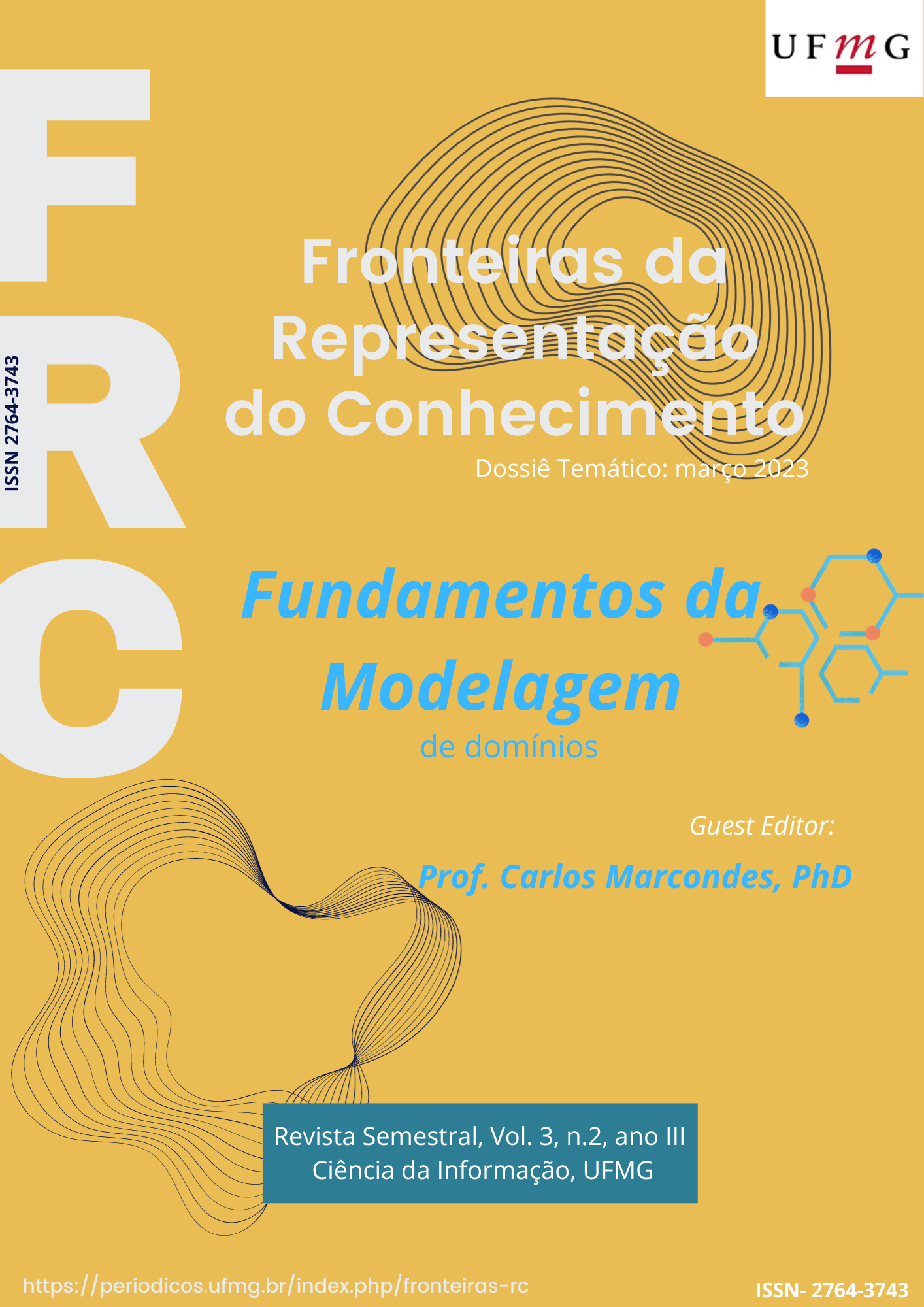Modeling Domains A Review of Professional Skills, Practices, Methodologies, Technologies, and Representation Tools
Main Article Content
Abstract
The evolution of information technologies brings challenges to automatic retrieval. Search engines struggle to make sense of human language, compromising recall and precision rates. There is a growing demand for information processing that meets requirements such as standardization and interoperability. The role of information professionals assumes an interdisciplinary and multifaceted perspective, promoting the necessary skills for knowledge representation aimed at building semantic vocabularies that are unambiguous and readable by humans and machines. In domain modeling, representation is achieved through a set of terms and relationships that translate the key concepts of "things" in this domain. Various representation tools with different degrees of formality and complexity are used in domain representation, employing techniques and tools in the modeling process. Analyzing a knowledge domain requires different levels and perspectives of understanding, demanding diverse information competencies from the modeler in constructing representation artifacts. Additionally, knowledge acquisition techniques are essential for a deep understanding of the domain. The article takes a conceptual approach, providing a didactic explanation of the necessary concepts and discussing the contributions of information organization and representation fields, focusing on domain modeling to identify the required techniques, methodologies, technologies, and representation tools for this activity. As contributions, a set of essential competencies and skills are presented for information professionals to model domains. This approach aims to address technical gaps not covered in traditional training for these professionals, providing a better understanding of the technical aspects related to domain modeling and expanding their scope of practice.
Article Details
Section

This work is licensed under a Creative Commons Attribution 4.0 International License.
From: https://creativecommons.org/licenses/by/4.0/
You are free to:
- Share — copy and redistribute the material in any medium or format
- Adapt — remix, transform, and build upon the material
- for any purpose, even commercially.
- The licensor cannot revoke these freedoms as long as you follow the license terms.
Under the following terms:
-
Attribution — You must give appropriate credit, provide a link to the license, and indicate if changes were made. You may do so in any reasonable manner, but not in any way that suggests the licensor endorses you or your use.
- No additional restrictions — You may not apply legal terms or technological measures that legally restrict others from doing anything the license permits.
Notices:
- You do not have to comply with the license for elements of the material in the public domain or where your use is permitted by an applicable exception or limitation.
- No warranties are given. The license may not give you all of the permissions necessary for your intended use. For example, other rights such as publicity, privacy, or moral rights may limit how you use the material.


